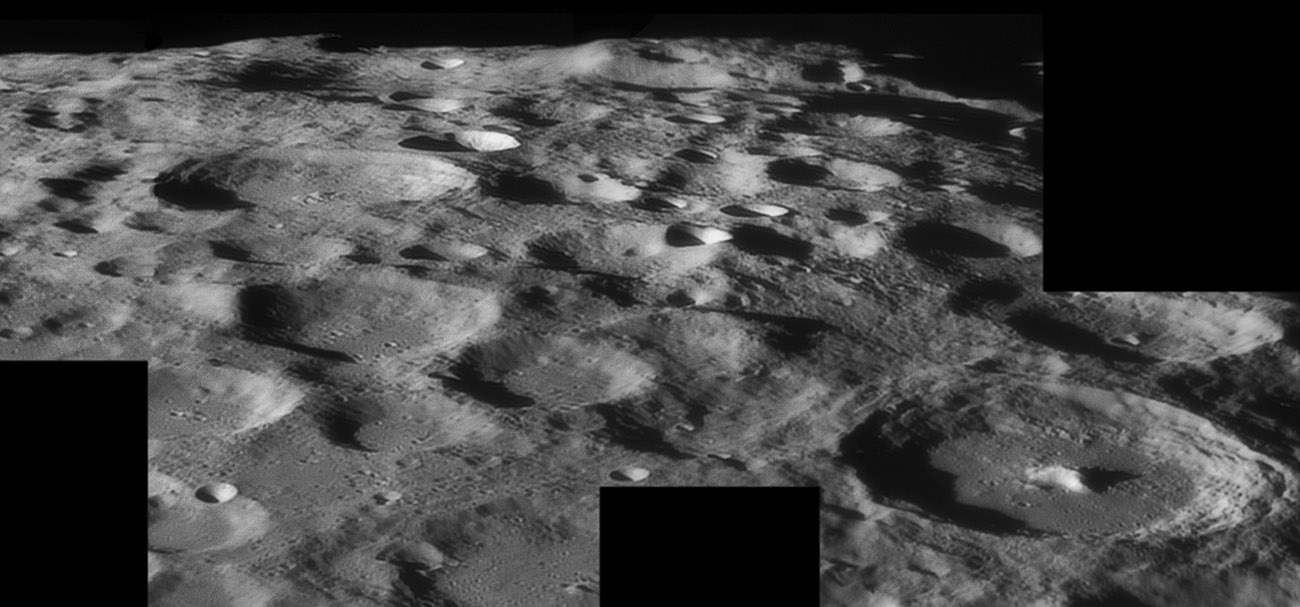February 24, 2011
The Top of the World
south up image by Carmelo Zannelli, Palermo, Italy
This is one of the best views of the Moon that we get from Earth. Peering over the rugged topography
of craters and mountains, some seen in profile, gives a strong feeling of what it must be like to be in
orbit. Mel's image shows, in addition to the depths and rises of craters, the roundness of many of the
surfaces. Every crater starts out being sharp-edged and surrounded by fractured and broken boulders.
Over time, bombardment by small projectiles smooths out asperities, producing the rolling terrain such
as Apollo 16 astronauts rovered through. Here, parts of the rim scarps of Moretus (bottom right) and
Schomberger (upper left) are still crisp, and Schomberger A (over its namesake's shoulder) and other
small craters have very sharp rims. But seismic shaking and unceasing bombardment have smoothed
out most of the other craters.
Chuck Wood
Technical Details
Feb 13, 2011, 1955 UT. C14 @ f/22 + PGR Fleas3 camera + Baader-Zeiss Abbe Barlow 2x + Baader
IR-685 nm filter; The camera is very bright in Red/IR channel so, I could use high frame rates (about 90/
100 fps) and fast times which give me about 4/5000 acquired frames for each AVi film. So, I stacked only
200 of about 5000 frames.
Related Links
Rükl plate 73
COMMENTS?
Click on this icon File:PostIcon.jpg at the upper right to post a comment.




